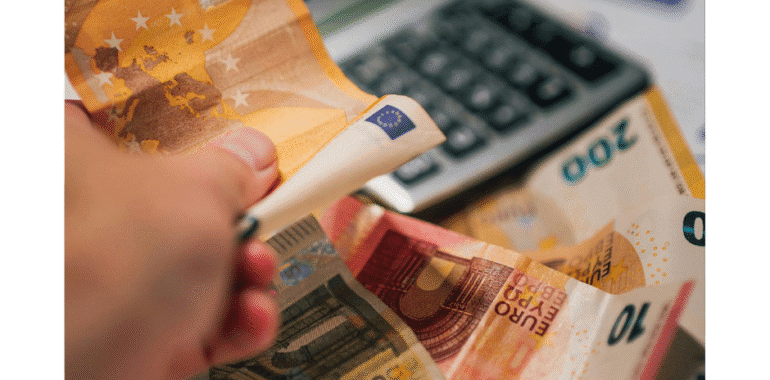
Tax Season Rebates: How to Deduct Forex Cashback
Tax Deductible Forex Cashback is a strategic way for traders to reduce their taxable income while earning passive rewards from trading activity. By properly classifying cashback as a business expense, you may unlock significant tax savings—if done correctly. This guide explains how to claim it legally and maximize your benefit.
Discover how to legally deduct your forex cashback as part of your trading expenses during tax season. This guide explains what qualifies, how to report it, and how traders can reduce their tax liability with forex rebates.
Tax Season Rebates: How to Deduct Forex Cashback
Forex trading, while profitable, comes with its fair share of complexities—especially when tax season rolls around. One often-overlooked advantage for traders is the ability to claim forex cashback as a deductible expense. Whether you’re a full-time trader or a part-time investor, understanding how to treat forex rebates in your tax filings can significantly reduce your taxable income.
Here’s a practical guide on how to manage and potentially deduct forex cashback during tax season—legally and efficiently.
✅ What Is Forex Cashback?
Forex cashback is a type of rebate or refund traders receive from brokers or third-party services for every trade they make. It’s essentially a loyalty incentive: the more you trade, the more cashback you earn—regardless of profit or loss. It serves to reduce overall trading costs like spreads and commissions.
💡 Is Forex Cashback Taxable?
Yes. In most tax jurisdictions, cashback is considered income. Whether you received the cashback from a broker directly or a rebate provider, it’s typically classified as part of your trading revenue. However, the good news is that trading expenses—including commissions and rebate programs—are often tax-deductible if you’re filing as a business or professional trader.
🧾 How to Record Forex Cashback
Accurate documentation is key. Here’s what you need to keep track of:
- Total rebate amount received (monthly or yearly)
- Source of cashback (broker or rebate provider)
- Associated trades (for matching cashback to expenses)
- Proof of transactions (bank transfers, PayPal receipts, etc.)
A spreadsheet or accounting software can make this process smoother. Some forex cashback platforms offer downloadable reports that can assist in compiling tax documents.
🧮 Claiming Forex Cashback as a Deduction
To deduct forex cashback, you must typically be filing taxes as:
- A sole proprietor
- A trading business (LLC, S-Corp, etc.)
- A self-employed professional
- H2: What Is Tax Deductible Forex Cashback and How Does It Work?
H3: How to Claim Tax Deductible Forex Cashback Legally
H3: Benefits of Tax Deductible Forex Cashback for Traders
H4: Common Mistakes with Tax Deductible Forex Cashback
H4: FAQs About Tax Deductible Forex Cashback
In these cases, cashback is treated as a reduction in trading costs, not separate income. It offsets transaction fees, spreads, and other trading costs. Here’s a simple formula:
Trading Expense = Broker Commission – Cashback Received
This means if you paid $1,000 in trading fees and received $200 in cashback, you would report a net trading expense of $800.
🛡️ Legal & Compliance Tips
- Consult a tax advisor: Regulations vary by country and even region. A tax professional can help you determine whether your rebate qualifies as deductible.
- Stay compliant: Always declare cashback—even if it’s a small amount. Non-disclosure can lead to audits or penalties.
- Separate accounts: Maintain a business account for trading-related expenses to simplify record-keeping.
🌐 International Tax Treatment
In countries like the U.S., U.K., Canada, and Australia, forex cashback may be treated differently. For example:
- USA: Under IRS guidelines, forex traders may report gains/losses under Section 988 or elect Section 1256. Cashback is often treated as income, but deductible against related trading expenses.
- UK: Profits from forex trading might fall under capital gains or income tax. Cashback should be included as part of profit/loss calculations.
- Canada: Considered income; rebates must be reported, and deductions apply if you’re operating as a business.
📈 Optimize Your Tax Savings
Here are a few bonus strategies to maximize your deductions:
- Use cashback reports to identify high-cost brokers and switch to more cost-effective ones.
- Track other deductible items like internet fees, trading software, and subscriptions.
- Apply for mark-to-market accounting if eligible (especially in the U.S.) for broader expense deductions.
Final Thoughts
Forex cashback can be more than just a cost-saving perk—it can become a strategic tax deduction. As long as you maintain transparency, proper documentation, and understand local tax laws, you can legally reduce your tax burden while maximizing your returns.
Don’t leave money on the table this tax season. Know your rebates, track them well, and let them work for you—not just in your trading account, but on your tax return too.
Need help setting up proper tax records for your forex trading? Reach out to Mehasa Consulting for tailored financial and bookkeeping services.